1. Introduction
Vitamin water has become a popular choice for people looking to stay hydrated while also getting a boost of vitamins. With various flavors and the promise of added nutrients, it’s often seen as a healthier alternative to sugary sodas and even plain water. But, is vitamin water good for you?
In this article, we’ll explore whether vitamin water is good for you, its potential benefits and drawbacks, and whether it lives up to its healthy image. By the end, you’ll have a clearer idea of if vitamin water is good for you and whether it’s a smart choice for your hydration needs.
2. What is Vitamin Water?
So, is vitamin water good for you? Vitamin water is a type of flavored drink with added vitamins, minerals, and sometimes electrolytes. It’s often marketed as a healthier option for those who want something more than plain water, giving you a splash of flavor and extra nutrients in each sip. However, not all vitamin water is created equal.
The main ingredients you’ll find in most vitamin water products are:
- Water: The main component, providing hydration.
- Added vitamins and minerals: Often includes vitamins like B, C, and E, which support energy and immunity.
- Sweeteners: Some brands use sugar, while others may use artificial sweeteners to keep calories low.
- Flavors: Natural or artificial flavors are added to make it more enjoyable to drink.
Overall, vitamin water is more than just water—it’s a drink designed to taste good and provide extra nutrients. But does it really live up to its “healthy” reputation, and is vitamin water good for you? Let’s take a closer look.
3. Nutritional Breakdown of Vitamin Water
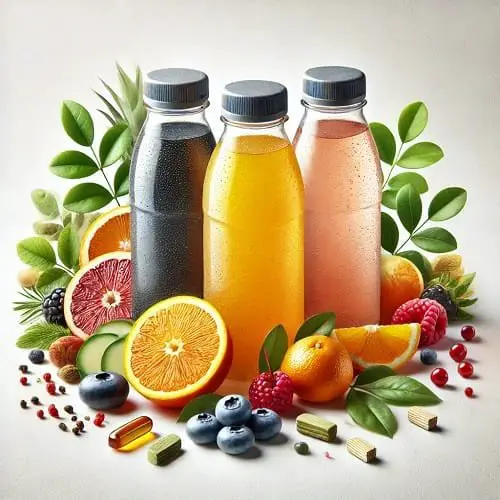
To understand is vitamin water good for you, it’s important to know what’s in it. Here’s a quick breakdown of the key nutrients and ingredients:
- Vitamins: Most vitamin water products contain vitamins such as B3, B5, B6, B12, and C. These vitamins are added to support energy and immune function.
- Electrolytes: Some versions of vitamin water include electrolytes like potassium and magnesium, which help with hydration and muscle function, especially during exercise.
- Sugar Content: Many types of vitamin water contain added sugar. While this may make the drink taste better, it also adds extra calories—often around 100-120 calories per bottle. Some brands offer sugar-free versions for those looking to avoid extra sugar.
- Artificial Sweeteners: To reduce calories, certain brands use artificial sweeteners, like sucralose. While these options have fewer calories, some people prefer to avoid artificial ingredients for health reasons.
- Calories: A single bottle of vitamin water can contain about the same calories as a small snack, especially if it’s sweetened with sugar. Those monitoring their calorie intake should take this into account.
This breakdown shows that while vitamin water may provide some nutrients, it also comes with added sugars and calories that could impact your health goals. This brings us back to the main question: Is vitamin water good for you?
4. Health Benefits of Vitamin Water
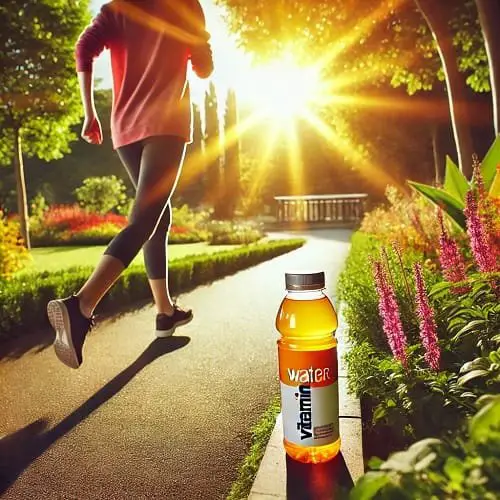
Vitamin water has certain benefits that appeal to people looking for an alternative to plain water. Here’s a deeper look at why some people consider vitamin water good for you:
- Encourages Better Hydration Habits: For those who find plain water unappealing, vitamin water provides a flavorful option that can make it easier to stay hydrated. This can be especially helpful for people who struggle with drinking enough water throughout the day, as dehydration can lead to headaches, fatigue, and low energy levels. By enjoying a flavored drink that also provides vitamins, it can be easier to stay on track with hydration.
- Convenient Source of Vitamins: Vitamin water offers a simple, on-the-go solution for people who may not consistently get enough nutrients through their regular diet. While it’s generally best to get vitamins from whole foods, vitamin water provides an easy way to get a small boost of essential vitamins. For example, B vitamins in vitamin water are essential for energy production, while vitamin C acts as an antioxidant to support the immune system.
- Electrolytes for Active Lifestyles: Some types of vitamin water contain electrolytes like potassium and magnesium, which are crucial for muscle and nerve function. For individuals who exercise frequently or sweat heavily, the electrolytes in vitamin water can help replenish what the body loses through sweat, supporting overall performance and recovery.
- Antioxidant Properties: Certain flavors of vitamin water contain antioxidants, which help protect cells from free radical damage. Free radicals are unstable molecules that can lead to cell damage and contribute to aging and various diseases. By including antioxidants in their diet, some people believe they may be able to reduce oxidative stress and improve overall wellness.
ALSO READ
Is Water Wet? The Definitive Answer to This Puzzling Question
Does Aloe Vera Gel Expire? Essential Facts Every User Must Know!
The Incredible Health Benefits of Drinking Honey and Apple Cider Vinegar
5. Drawbacks of Vitamin Water
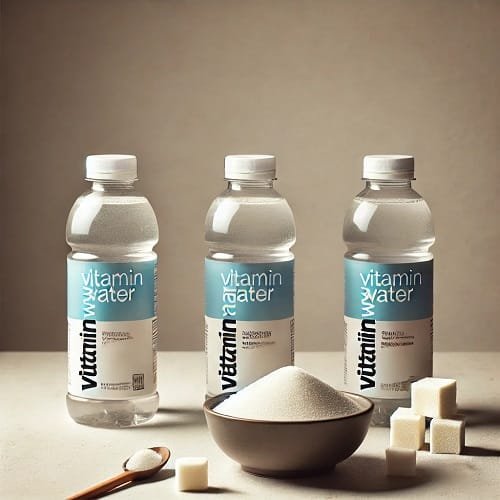
Despite its benefits, there are some key drawbacks to consider when asking, “Is vitamin water good for you?” Here are some additional points that provide a fuller picture of potential downsides:
- Added Sugars and Health Risks: Some vitamin waters contain as much as 30 grams of sugar per bottle, which is similar to the sugar content in a can of soda. Consuming too much added sugar over time can lead to several health issues, including weight gain, insulin resistance, and increased risk of heart disease. Additionally, the World Health Organization recommends limiting daily sugar intake to about 25 grams for optimal health, meaning one bottle of vitamin water may already exceed this guideline.
- Excessive Vitamins: While vitamins are generally safe when taken within recommended levels, there can be risks with high doses of certain vitamins. For example, too much vitamin C may lead to digestive issues, while excess B vitamins can cause flushing or other minor side effects. If you already take a daily multivitamin or have a balanced diet, you may be getting enough vitamins without the extra intake from vitamin water.
- Possible Concerns with Artificial Sweeteners: In sugar-free versions, some brands use artificial sweeteners like sucralose. Although the FDA considers these sweeteners safe in moderate amounts, some studies have raised questions about their long-term impact on gut health and metabolism. For individuals who prefer to avoid artificial ingredients, these alternatives may not be an ideal choice.
- Environmental Impact of Plastic Bottles: Many types of vitamin water come in single-use plastic bottles, which can contribute to plastic waste. While some companies offer recyclable packaging, not all bottles are recycled, which has environmental implications. Those concerned about their ecological footprint may consider this when choosing their hydration options.
6. Is Vitamin Water Better Than Plain Water?
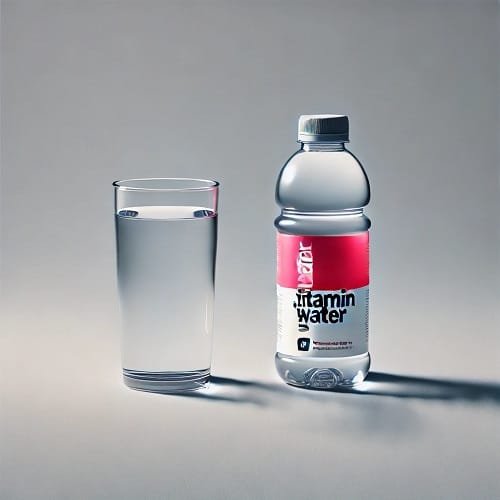
When comparing vitamin water vs plain water, the choice isn’t always clear-cut. Plain water is calorie-free, sugar-free, and provides pure hydration. On the other hand, vitamin water offers a boost of flavor and some nutrients, but it often comes with extra sugars or sweeteners.
Is vitamin water good for you when compared to plain water? For most people, plain water remains the healthiest choice for daily hydration. However, vitamin water can be an occasional option, especially if you’re looking for a change in flavor or need a quick vitamin boost. It’s best used as a supplement rather than a replacement for regular water.
7. Vitamin Water vs Sports Drinks
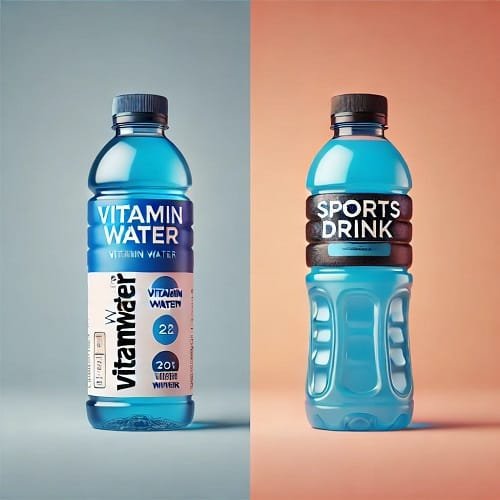
Another common comparison is vitamin water vs sports drinks. While both may contain electrolytes, sports drinks are usually designed specifically for athletes or people who need to replace lost fluids and electrolytes after intense physical activity. Sports drinks often contain more electrolytes and sometimes even higher levels of sugar.
So, is vitamin water good for you when compared to sports drinks? Vitamin water may appeal more to casual drinkers who want a touch of flavor with some added vitamins. However, for heavy workouts, sports drinks might be more effective at rehydrating and replacing lost electrolytes.
8. Who Should Drink Vitamin Water?
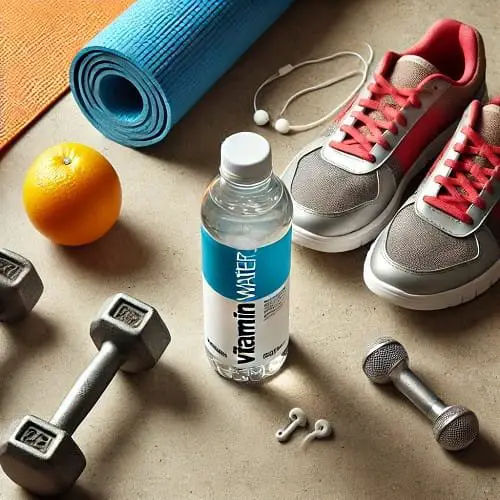
Vitamin water might be a good option for certain groups. Let’s dive a little deeper into who might benefit from drinking it and why it may or may not be good for you:
- Athletes and Active People: For individuals who engage in moderate to intense exercise, the electrolytes in some types of vitamin water can help replenish what is lost in sweat. Electrolytes are vital for muscle function and hydration, so drinking vitamin water after a workout can support better recovery and reduce the risk of muscle cramps. However, active people may benefit more from dedicated sports drinks, which often contain a higher concentration of electrolytes.
- Busy Individuals: For those with a hectic lifestyle, vitamin water can provide an easy, portable way to hydrate while also adding a small boost of vitamins. It’s not meant to replace a balanced diet, but for people with busy schedules, it may be a convenient option to have on hand.
- People with Diet Limitations: For some individuals, especially those with dietary restrictions, vitamin water can offer a supplementary source of specific nutrients they may lack. For example, someone with limited access to fresh fruits and vegetables may appreciate the added vitamin C in certain flavors of vitamin water.
- Those Looking to Replace Sugary Beverages: Vitamin water may also appeal to people who want to cut back on sugary sodas or juices but still crave a flavorful drink. While it’s not calorie-free, vitamin water can be a slightly better alternative to traditional soft drinks that contain high amounts of sugar and artificial ingredients.
9. Frequently Asked Questions (FAQ)
Is vitamin water good for weight loss?
Vitamin water may not be ideal for weight loss due to its calorie content, especially in sweetened varieties. Sugar-free options could be a better choice, but plain water remains the top recommendation.
Does vitamin water help with hydration?
Yes, vitamin water does help with hydration. However, is vitamin water good for you for hydration purposes? It may not be any better than regular water unless you need the added vitamins or electrolytes.
Are there side effects to drinking vitamin water?
Drinking vitamin water in moderation is generally safe. However, consuming it in excess may lead to extra calorie intake or too much of certain vitamins, potentially causing side effects.
10. Conclusion
So, is vitamin water good for you? It ultimately depends on your personal health goals and preferences. Vitamin water offers some benefits, like added vitamins and flavor, which can help with hydration. However, the added sugars and calories mean it’s not necessarily a “healthy” drink for everyday use.
If you’re looking for a flavorful way to hydrate, occasional vitamin water can be a satisfying option. But for regular hydration, plain water is still the best choice. Consider your personal needs and enjoy vitamin water in moderation for the best results.






